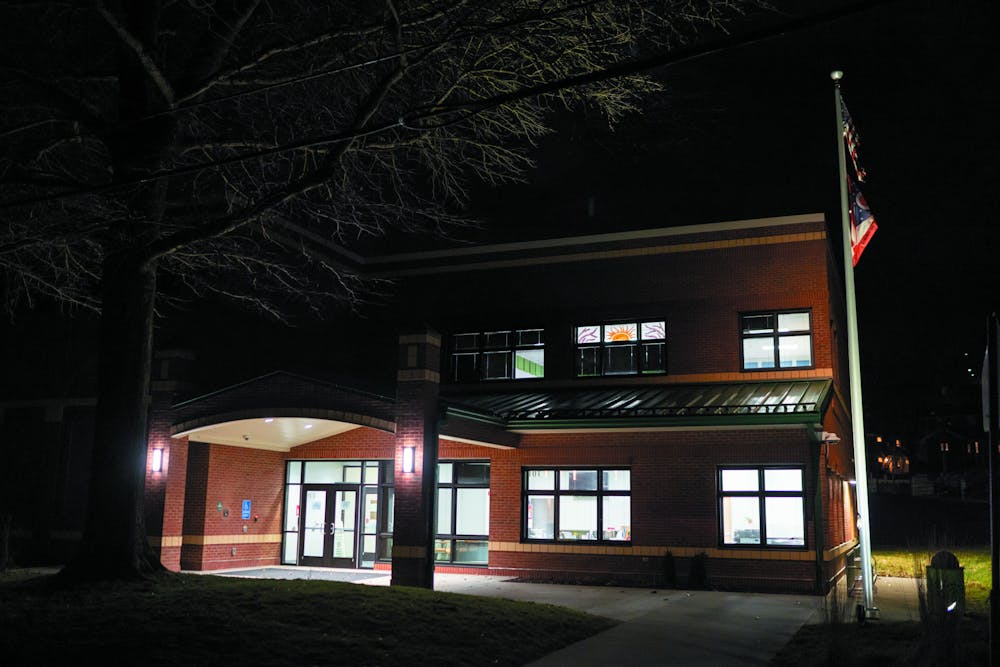The food children eat helps fuel their future. Balanced meals at a young age support mind and body growth that fosters success, according to Action for Healthy Kids. The team at Live Healthy Appalachia, or LHA, a local, wellbeing nonprofit, emphasizes the importance of eating well early in life. This is why they created the Live Healthy Kids program.
Live Healthy Kids, or LHK, is a 22-week program that helps facilitate healthy lifestyles in Southeast Ohio second grade classrooms. LHK is currently implemented in eight different schools.
According to the Ohio Department of Education, Ohio Law does not permit the Board of Education to adopt health education standards in Ohio. Local control of the health curriculum means that proper nutritional education is not guaranteed, making programs like LHK invaluable to local communities.
During the first half of the program, students learn the fundamentals.
“The goals are basically nutritional education and health education,” said Bailey Borland, Director of LHK and community outreach for LHA. “What is a veggie? Why is it good to move your body? What are germs?”
While taking part in hands-on cooking lessons, second graders learn how to properly prepare fresh meals. Educators instruct students to safely use a knife, identify food groups and understand the nutritional value of their meal.
The remaining portion of the LHK program encourages children to step outside their comfort zone and try new foods that are sourced from different cultures and locations.
“It's also cool because we're actually teaching them about different cultures,” said Alexis Walter, the LHK coordinator.
During these lessons, students learn new words from different languages.
“When we did Lebanon, they were learning Arabic words, and one of our students speaks Arabic, so we actually had her teach her class, and she was so excited about it,” said Suzy Aftabizadeh, a LHK Athens City Schools wellness member. “She felt really empowered. I just feel like it's growing perspectives in the early stages of life, which is very fun to see.”
All of the meals made by LHK are plant-based and make use of fresh produce. Students are encouraged to bring recipes home and engage their family in the same healthy habits that they are learning in the classroom. Unfortunately, fresh and healthy items included in LHK recipes are often inaccessible in rural and low income areas.
According to a report by Feeding America, the food insecurity rate in Athens County is 18.2%, with nearly 12,000 food insecure people. It is estimated that an additional $5,795,000 is required in order to meet these food needs.
LHK educators suggest adaptations to their recipes to encourage healthy eating.
Aftabizadeh explained that instead of using fresh produce, canned fruits and veggies can be supplemented. She also suggested that beans and rice are accessible, affordable substitutions for many recipes.
Frequently, children are trying fresh produce items for the very first time in LHK classrooms.
“We have kids like ‘I just tried an orange for the first time’ or like ‘I've never had a strawberry,’” said Borland. “So we're just starting their palates off, giving sometimes the food they never had or can’t have.”
Many of the LHK teachings extend beyond food.
“We also teach them manners,” said Walter.
Walter explained that there are three things reiterated during the program: wait until everyone has their plate to eat, do not “yuck” someone’s “yum” and just try it. Program educators work to create a culture of respect revolving around eating habits.
“It's also about not shaming somebody's eating practices,” said Aftabizadeh. “It's really just about education. The healthy lifestyle is really about healthy habits and building responsible mindsets around health.”






